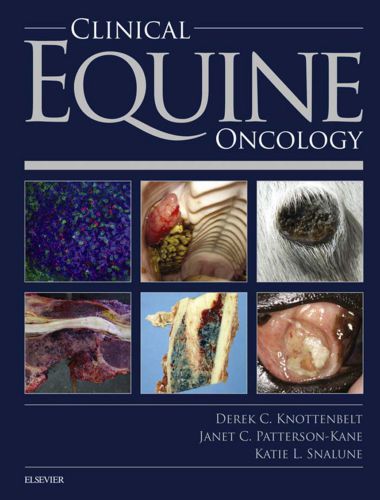Clinical Equine Oncology, Writing and constructing a major textbook is not to be undertaken lightly! Before a project such as this can even be proposed, there has to be a reason for it.
Free Clinical Equine Oncology 1st Edition

Why do we need a book on equine cancer medicine?’ ‘Will it help practitioners in particular to improve the quality of their practice and will it be of benefit to the horse itself as a species?’ Those were just a couple of the questions we asked before we set out on the project. It did not take long to realize that there is no other similar textbook on the subject. There are, of course, many excellent textbooks on general medicine and surgery relating to the horse and many of these have significant oncology content.
Download PDF: Manual of Equine Dermatology
There are those books that are focussed on one particular anatomical system or syndrome. Lameness, skin diseases and dentistry are just three of them. There are dedicated textbooks dealing with infectious disease, reproductive medicine and surgery, and surgical and medical tomes that are comprehensive sources of information. The increasing specialization of equine practice is a worldwide phenomenon that has resulted in the development of dedicated training requirements in defined aspects of practice and this is both a laudable and a positive contribution to the improving standard of medical and surgical care that we provide to our patients and their owners. However, in spite of cancer medicine being a major human and small animal specialism, cancer medicine in the horse clearly lags a long way behind.
Free Clinical Equine Oncology 1st Edition
A quick search on cancer on any literature database will confirm the exponential rise in publications at all levels that deal with cancer in humans, small animals and experimental conditions. Furthermore, single-case reports on equine oncological topics abound in the modern scientific literature. There is, however, no dedicated equine oncology textbook and indeed, whilst the literature is littered with ‘case reports’ and small case series, there has been no concerted or constructive effort to expand this important area of medicine.
The demographics of the equine population are changing dramatically. In the developed world, horses are increasingly being kept into old age and so with greater numbers of older horses, we have to expect greater numbers of cases of cancer in the population. Even in the developing world, significant improvements in management and care mean that horses, mules and donkeys are living for longer, and again this will inevitably mean increasing numbers of cancer cases. There is a clear need for a focussed comprehensive text on equine cancer medicine and surgery. That is our main reason for setting out to produce this book on equine oncology.
The horse remains an important aspect of human life. In places where horses are ‘pleasure and leisure’ animals, they provide enormous enjoyment and also bring financial returns to nations and to individuals. The equine industry employs vast numbers of people and equine ‘sport’ provides physical exercise for people between 2 and 90 years of age. No other sport does that!
| PDF Size: 16 MB | Book Download Free |
Password: pdflibrary.net
